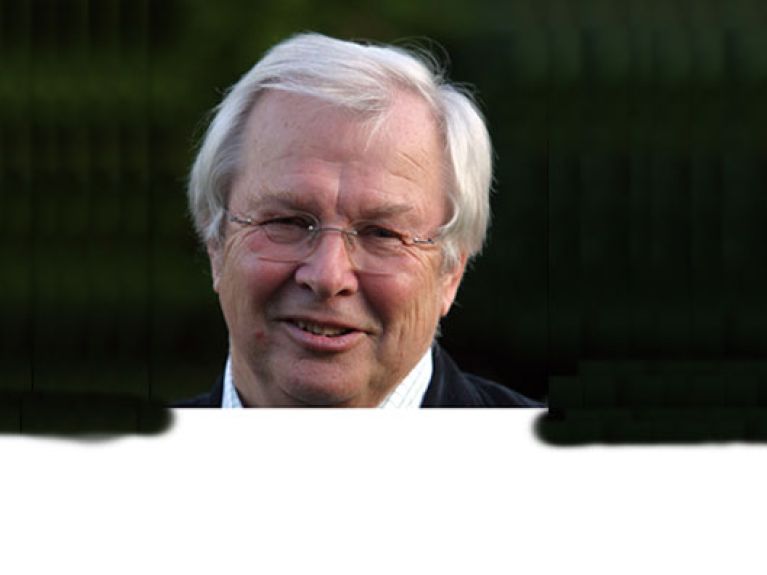2014 European Elections – Scepticism and Optimism
Do we need more or less Europe? Some people see the elections to the European Parliament in 2014 as an “election that will determine our destiny”. An interview with political scientist Wichard Woyke.

Professor Woyke, why is this European election so important?
It is crucial because it is the first time that we will be voting for a European Parliament majority which will in turn elect the European Commission president. This was not the case in the past and explains to some extent why the election turnout was always extremely low.
The turnout in 2009 was 43 percent. Former Luxembourg prime minister and Eurogroup president Jean-Claude Juncker warns that another poor turnout could undermine the Parliament’s legitimacy. Is this fear justified?
Yes and no. No-one has ever questioned the fact that the Asta students’ union serves as the main student representative organization at German universities despite elections to it generally attracting at most 20 percent of voters. US elections frequently see a turnout of below 50 percent. The development is regrettable nonetheless, and certainly suggests that parliamentarianism would be undermined if only around 19 percent of the electorate were actually to vote, as was the case in Slovakia – the country with the lowest turnout at the European elections in 2009.
“Euro bailout measures are clearly having the desired effect”
There appears more than ever before to be two distinct camps – is this in fact the case? One camp wants more Europe, the other wants less. Some people are already talking of an “election that will determine our destiny”.
In my view it is a bit over the top to say that the election will determine our destiny. Of course there are two different attitudes as regards the further development of European integration. The question is whether we wish to transfer responsibility for more areas to Europe or whether we want to renationalize certain competencies. In my opinion, however, a combination of the two is also conceivable. In agriculture, for instance, supranationality has already been scaled back quite a bit, and this can be continued. In other areas, however, we need greater Europeanization – for example in economic and monetary policy. The much-criticized methods of supporting financially-weak member states are clearly having the desired effect. Spain, Ireland and Portugal are leaving the euro bailout programme.
Which projects does the EU need to tackle after the elections in order to prove itself?
The EU will increasingly also find itself confronted with international problems for which it will need to find solutions. It has to design immigration and asylum policies that suit Europe. It will also not be possible to avoid the issue of the free trade agreement with the USA. We finally need to reach agreement on this. Environmental issues, which pose a major challenge to the EU, will likewise play a role. In addition, the German defence minister Ursula von der Leyen has once again raised the subject of a European army.
What role will Germany play in such plans?
Germany will exercise considerable restraint because otherwise it will constantly be accused of attempting to impose its will on its European partners. On the other hand, many people expect Germany to make proposals and drive development forward. The important thing will thus be to get the other countries on board, building upon Franco-German cooperation.
“Demystifying right-wing populists”
There is a risk of Great Britain breaking away from the EU. Prime Minister David Cameron has declared that a referendum on whether to remain in the EU will be held by the end of 2017 at the latest. Will the European elections set the course for the relationship between the two in the future?
Of course. If the Euro-sceptic United Kingdom Independence Party (UKIP) does well, the pressure to hold the referendum will increase. It will then become clear whether Great Britain will continue along the path towards integration. If not, we may find ourselves facing the curious situation of Scotland taking its place. Scots will be voting before 2014 is out on whether to become independent, and are very pro-European.
In Great Britain there is UKIP, while in Germany there is the Alternative für Deutschland (AfD, i.e. Alternative for Germany), and Eurosceptic parties are canvassing for voters in other countries too: how great is the danger of their gaining influence in Europe?
I regard this not so much as a danger than as a phenomenon that reflects the spirit of the time. I am sure that the Eurosceptics and right-wing populists will receive a few more votes than they have in the past. They need 25 members from at least eight states in order to form a parliamentary group, and they will achieve that.
Wouldn’t that pose a major obstacle for Europe?
No, because we would then have a clearer separation between government and opposition. The two major parliamentary groups – the conservatives and social democrats or socialists – must work together in order to shape policy. If the Eurosceptics are also represented, the European Parliament could become more interesting in media terms. It could draw far more attention to its activities than in the past and contribute to demystifying the over-simplified slogans used by certain political factions.
Wichard Woyke is emeritus professor of political science. He taught at institutions such as the universities in Münster and Leipzig, as well as in France, Hungary and the USA. Focal areas of his research include European integration and Franco-German relations. He edited the “Handbuch für internationale Politik”, a manual of international policy, for Germany’s Federal Agency for Civic Education.
Helen Sibum conducted the interview. She is an editor in Frankfurt am Main.
© Goethe-Institut e. V., Internet-Redaktion
First published on www.goethe.de

